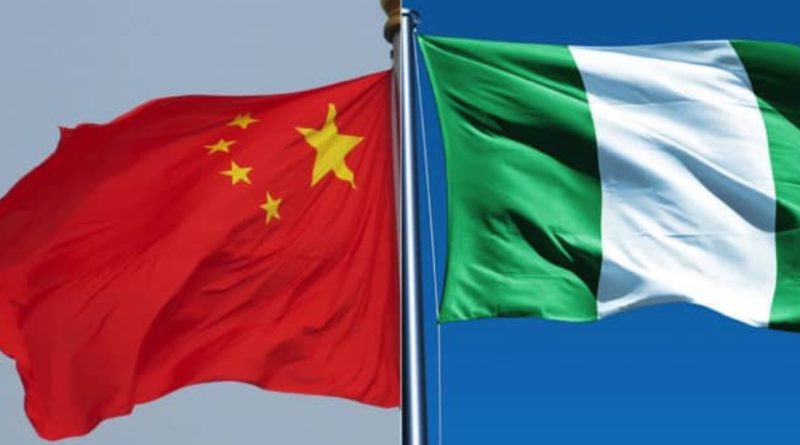THE DEVIL’S IN THE DETAILS: Unpacking the $3.3 Billion China-Nigeria Deal
Perspectives with Dr. Iyke Ezeugo
Nigeria, ever the bride of questionable suitors, has found herself once again walking down the aisle, this time with China at the $3.3 billion ceremony, all under the presiding eye of President Bola Tinubu. Promised as a partnership for the development of the Brass Industrial Park and Methanol Complex, the deal is, at first glance, wrapped in the silk of economic growth, job creation, and mutual benefit. But as we know, in the bedrock of international diplomacy, “the devil is in the details,” and if history has taught us anything, it’s that China is a lover that always demands more than just affection.
China’s Economic Colonialism: A Well-Worn Playbook
The whispers of “debt-trap diplomacy” are no longer just whispers; they have become a blaring siren as China sets its gaze on developing nations with promises of economic empowerment and infrastructure projects. This playbook has been well-documented from Zambia to Sri Lanka, where these projects are quickly revealed as leverage for seizing strategic national assets when debts can’t be repaid. Sri Lanka’s Hambantota Port, Zambia’s electricity grid—the list reads like a cautionary tale of those who once invited China into their homes, only to find the locks changed once the ink dried on unpaid loans.
And now, Nigeria—armed with billions in previous debts, eager eyes, and a government with an opaque agenda—has waded into the same swamp. The question is: has anyone thought about the exit strategy? Or, as is often the case, is the intention to tie us to the bottom?
Enter Uncle T: The Crony Capitalist Extraordinaire
Of course, it’s a relief to know Uncle T is in charge even though it’s hard for some people not to add a dash of suspicion when Uncle T is leading the charge. Their claim: his penchant for crony capitalism isn’t folklore—it’s fact. From the infamous Lekki Toll Gate to the larger-than-life Eko Atlantic project, and more in Lagos, have borne the brunt of his profit-first, public-last style of governance. Nigerians, meanwhile, have been left paying the tolls—both literally and figuratively—while Uncle T’s inner circle flourished.
With Uncle T’s Midas touch (the version that turns national assets into private gold), it’s hard not to see the $3.3 billion deal as yet another potential avenue for personal enrichment, wrapped in the clothing of national interest. And given China’s track record, it wouldn’t be a stretch to imagine both parties walking away with their pockets full, leaving Nigeria holding the bag—again. Anyway, that’s their view. While the former is still a subject of research for me, the later is a settled body of knowledge.
Debt Trap or Trojan Horse?
The true nature of the $3.3 billion deal remains shrouded in mystery, with no clear details about whether it’s a loan, an investment, or a grand illusion of both. Historically, China doesn’t “invest” out of the kindness of its heart. In nearly all similar projects across the globe, loans have been structured in such a way that, once the host country defaults, control over critical infrastructure is ceded to China. If this deal is indeed a loan in disguise, Nigerians have every reason to be concerned. And if it’s an investment, it raises even more red flags: what are the guarantees that the Brass Industrial Park and Methanol Complex won’t simply become another extension of China’s growing empire?
Circumventing Scrutiny: The Tinubu Touch
More concerning is the way this deal was announced—at the China-Nigeria Economic Cooperation and Trade Conference. Not through official channels, not verified by the National Assembly with their oversight functions – even though rubber-stamped most of the time, but at a forum ripe for soft agreements and backdoor handshakes. It’s almost as if the government is trying to sidestep the very scrutiny that should accompany a deal of this magnitude. The fine print on these types of arrangements is often the key to understanding their full implications, and as of now, it feels like that fine print is locked away in a drawer somewhere in Beijing. Anyway, it’s possible Baba will remember to come with a copy, no matter how rough.
Transparency is a foreign concept here, much like in Zambia before its national assets were appropriated. One can’t help but wonder: is this $3.3 billion a clever attempt to bypass public accountability while sinking Nigeria deeper into the Chinese financial quicksand?
Environmental and Sovereignty Concerns: Selling Our Future
Of course, the usual suspects in the deal—economic development, job creation—will be dangled like carrots before the eyes of the Nigerian public and President Tinubu that is desperate to brighten the impression. But I hope the President and all of us know that those beautiful looking carrots can never come without strings attached. The environmental costs of such industrial projects are often borne by local communities, with pollution, land degradation, and health hazards being the uninvited guests. And sovereignty? It’s likely to be for sale.
With China building these projects, Nigeria risks handing over critical control to a foreign power. In many African nations, once China’s foot is in the door, it’s incredibly difficult to reclaim autonomy over the projects they help “finance.” What happens when Nigeria can’t pay back that $3.3 billion as required? Will Brass Industrial Park become another Hambantota, slowly slipping from Nigerian hands into the tight grip of Beijing?
A History Lesson: Zambia and Sri Lanka
Zambia and Sri Lanka’s experiences with China stand as stark reminders of the price of miscalculating these deals. Zambia’s national electricity grid is now under partial Chinese control, a consequence of unpaid debts tied to similar “development” projects. Sri Lanka, meanwhile, had to hand over its Hambantota Port to China on a 99-year lease. These are not isolated incidents, but part of a pattern that Nigeria seems eager to ignore in its pursuit of quick gains.
China rarely loses when it comes to these deals. They extract the resources, control the infrastructure, and leave the host nation scrambling to repay loans that, in many cases, were unsustainable from the start. The Nigerian government should be under no illusion—this $3.3 billion is no free lunch. There’s always a bill, and China makes sure it’s collected.
The Nigerian Debt Burden: Is This the Final Straw?
As Nigeria’s debt to China approaches $5 billion, the real question is how much more we can take. What does this deal add to that burden, and more importantly, what does it take away? The figures may seem abstract now, but for future generations of Nigerians, the consequences will be all too real—crippling debt, lost national assets, and a country beholden to foreign interests.
Conclusion: A Familiar Tune
History, as they say, has a tendency to repeat itself, and if the Nigeria-China deal follows the pattern we’ve seen across the world, the conclusion is already written. Nigeria’s resources and infrastructure will serve foreign interests, while Nigerians watch their sovereignty slip away. Uncle T, the driver, the ever-astute political capitalist, might walk away richer. China will most certainly emerge stronger. And Nigeria? Well, Nigeria will be left, once again, to pick up the pieces.
In the end, the $3.3 billion deal isn’t just a transaction—it’s a reflection of where Nigeria stands on the global stage. The country must demand accountability, transparency, and fairness, or risk becoming yet another pawn in China’s well-played game.
Dr. Iyke Ezeugo is a Forensic Researcher, a Social Impact Expert, and Satirist who uses his perspectives and parodies to challenge the status quo, spark debates, and inspire fresh perspectives on public affairs through insightful intellectual injections.




